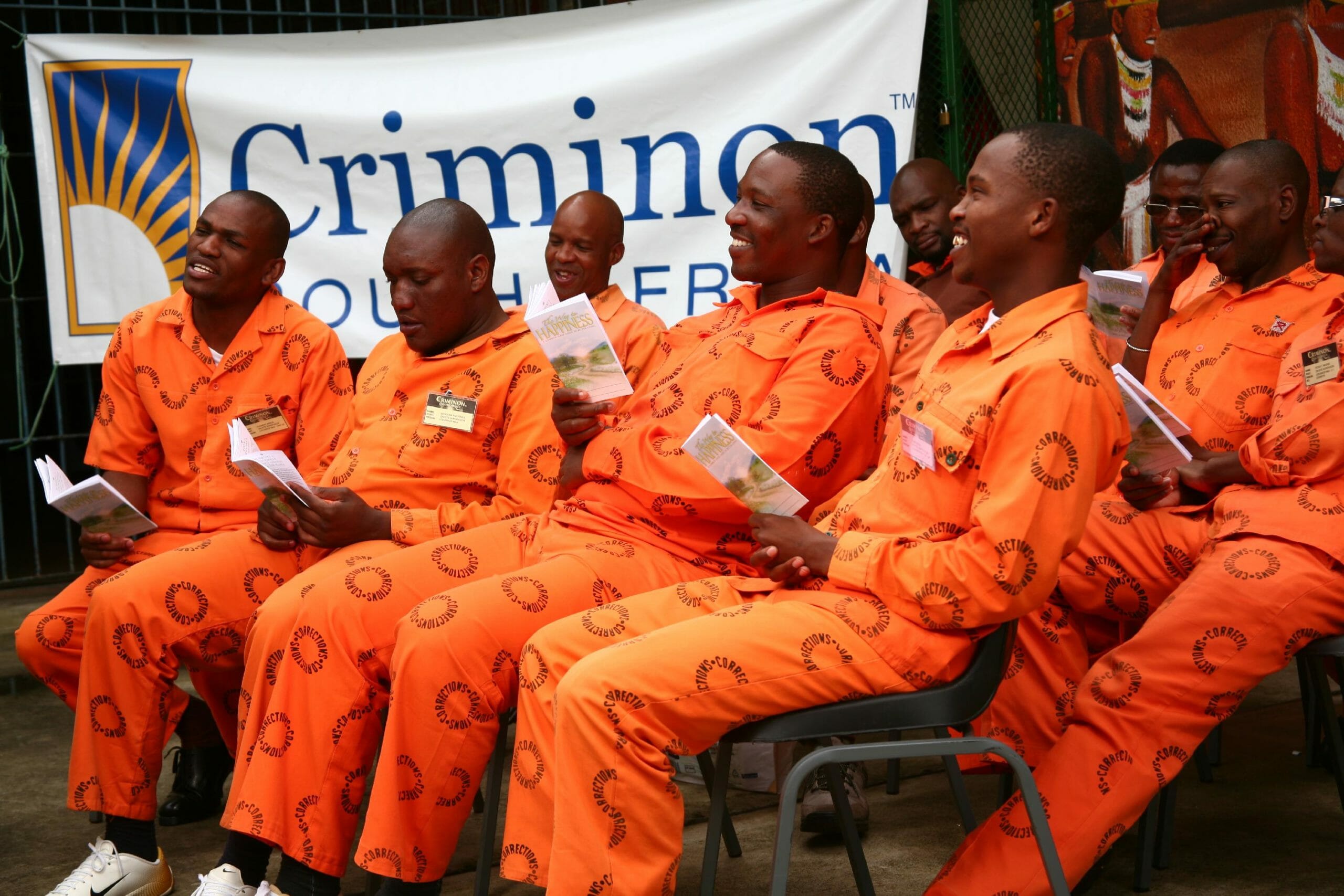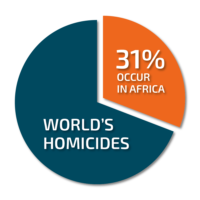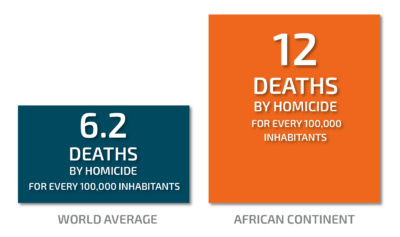
Africa
While crime occurs everywhere in the world, crime statistics and the types of crime committed look quite different from one region to the next. What types of crime occur most in Africa, and what sort of criminal justice efforts are being made to fix Africa’s justice system?
The Statistics – Crime in Africa

Unfortunately, crime rates in Arica are relatively high. According to one report, 31 percent of global homicides occur in Africa, even though the continent is only home to 17 percent of the world’s population. Six African nations, including South Sudan, South Africa, Nigeria, Kenya, and Libya, rank within the top twenty countries for annual homicides.

Crime rates per capita in Africa are also concerning. The world average for deaths by homicide is 6.2 per 100,000 inhabitants. But on the African continent, more than 12 annual deaths by homicide occur for every 100,000 inhabitants. On a continent with more than 1.2 billion people, about 146,000 homicides occur in Africa each year.
Criminal Justice Policy on the African Continent
Criminal justice on the African continent is fragile. Several reasons for this are:
- Humans rights abuses by African governments
- Extreme poverty throughout many African nations
- Lack of democratic processes within African nations
- Lack of infrastructure to implement criminal justice programs
- Outmoded colonial justice programs.
In a full study of criminal justice policy in Africa, author Irvin Kinnes points out that Africa’s history as a colonial territory for European powers has much to do with current criminal justice structures and institutions. Quoting Kinnes, “Africa is not unique compared with the rest of the world, except that it is a recovering colonial addict that unfortunately has lived up to the dictates of the remnants of the colonial paradigm. In the face of failed states that are recovering from colonialism, dictatorships that are undergoing political transformation, tyrannies and unstable states, the theory and practice of criminal justice produce results that either threaten or confirm the political legitimacy of such states.”
Penalties – How Punishments are Carried Out in Africa
Historically, much of Africa’s approach to penalties for crimes committed was inspired by African monarchy law and colonial law. Today, punishments and penalties for crimes committed in Africa take inspiration from Islamic law, remnants of colonial rule, and new, democratically decided criminal justice programs.
Again, when it comes to punishment, instability and fragility mark much of how crimes are penalized in Africa. Quoting the book, Crime and Punishment Around the World, “Long histories of colonial rule in Africa and the Middle East profoundly influenced not only political and economic development but also the evolution of criminal justice systems. Many of the countries in these regions became independent in the early or mid-20th century. However, civil war, ethnic violence, highly unstable political systems, and military coup d’états have tremendously influenced indigenous mechanisms of social regulation and have shaped the law, the role of police, and the justice system.”
Though the death penalty has been outlawed by most nations and is becoming increasingly unpopular globally, several African countries still practice this most severe of punishments, including Botswana, Egypt, Equatorial Guinea, Libya, Somalia, South Sudan, Sudan, and Nigeria.
Criminal Justice Reform in Africa
Much of the criminal justice reform in Africa centers around implementing human rights policies into African justice institutions. Organizations like the Africa Criminal Justice Reform Organisation are working to correct the deprivation of liberty, provide oversight of the criminal justice system, and promote new policy and legal changes based on the study of current judicial systems and preferred punishments/penalties.
Because of rapid changes in African criminal justice, fragility, social unrest, lack of democratic function within criminal justice, outmoded colonial systems, and isolated religious extremism, pushing for criminal justice reform in Africa often manifests simply in a campaign for human rights observation among Africa’s incarcerated population.
Looking to the future, significant criminal justice reform in Africa will have to tap into the will and support of the people, effective democratic function, and fair and honest observation of international human rights law.




